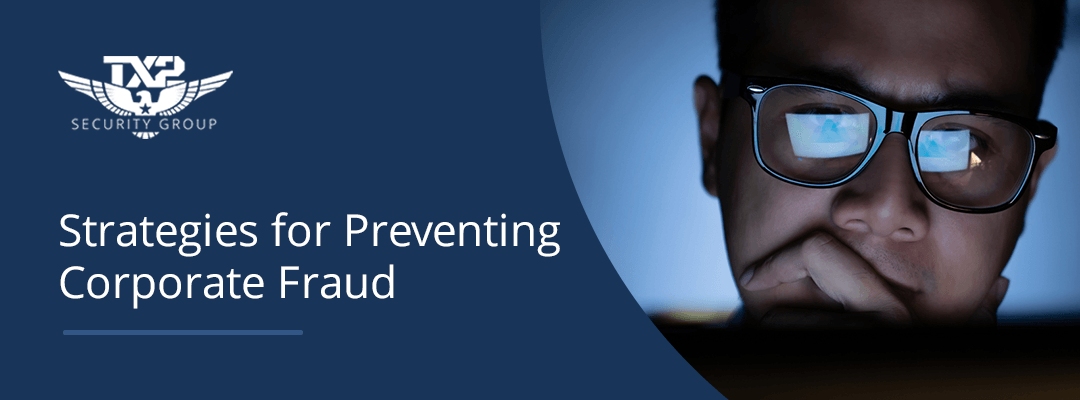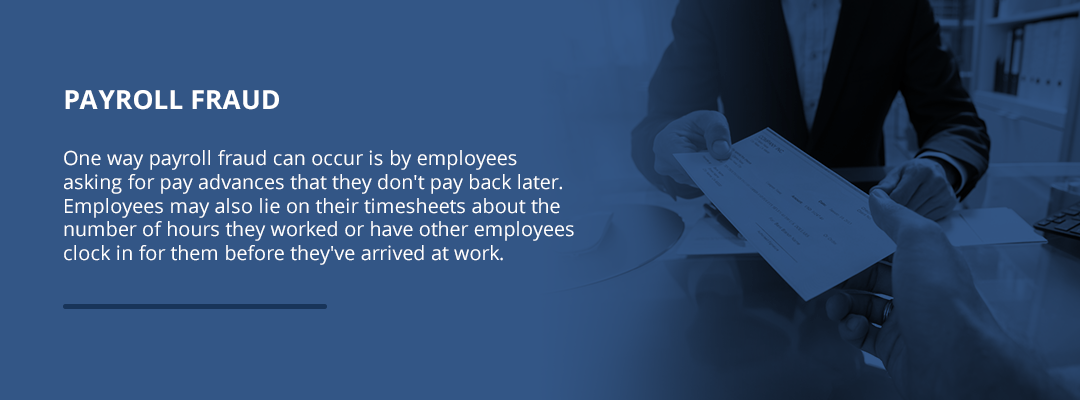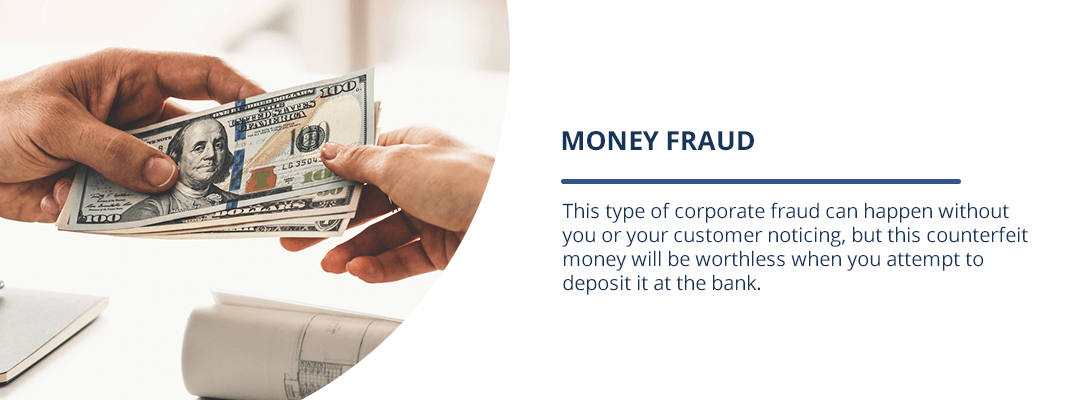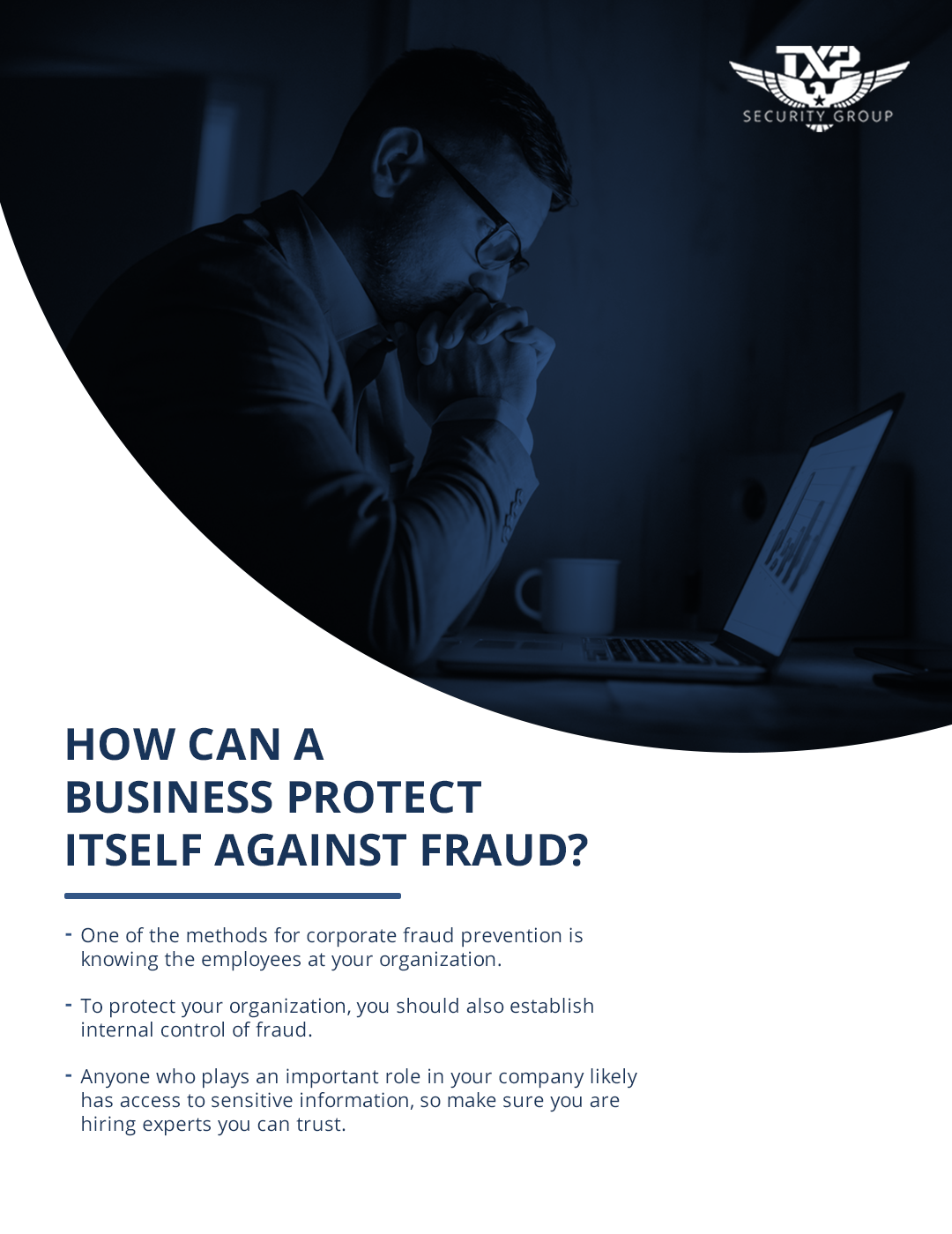9. Money Fraud
Money fraud occurs when money is faked. In the U.S., a lot of illegal cash is in circulation. This type of corporate fraud can happen without you or your customer noticing, but this counterfeit money will be worthless when you attempt to deposit it at the bank.
Most counterfeit bills are higher value bills, and if you accept this fake money from a customer, you won’t receive revenue from your service or sale, or you may risk exchanging real currency for counterfeit money when you give someone change.
To combat money fraud, you should educate yourself on how to detect fake money. Examine different features included on legal money, such as watermarks, microprinting, raised printing or color-shifting ink. You should also train your employees on how to check cash before they accept it.
10. False Accounting Fraud
What is false accounting fraud? False accounting fraud refers to the alteration of the presentation of company accounts so the accounts don’t reflect the true financial activities or value of the business. Typically, when this type of fraud occurs, assets are overstated or liabilities are misrepresented.
Why does false accounting fraud occur? Usually, false accounting is performed to inflate share prices, report unrealistic profits or obtain financing.
11. Return Fraud
Your business may also face the risk of return fraud. Return fraud can come in different forms, such as customers purchasing a product, using it and returning it even when there’s nothing wrong with it. Your company might also deal with people who steal a product from you and try to return it for a profit.
Return fraud can damage your business by decreasing your profits. Though you may not be able to eliminate return fraud completely, you can limit return fraud by implementing effective policies. One solution you can incorporate is the requirement of receipts.
Another solution is tightening policies so customers can receive store credit only within a specific timeframe. While you want your customers to be satisfied, you don’t want to risk losing money to return fraud.
Effective Ways to Detect Fraudulent Activity
Are you wondering how to detect fraud in a company? Knowing how to detect fraud early is crucial for preventing losses. Consider implementing the following fraud detection methods at your organization:
How to Detect Corporate Fraud With Tip Lines
Among the most effective ways of detecting fraudulent activity is setting up an anonymous tip line. Tips are the most common method for initially detecting fraud. Losses due to fraud are also lower in companies that have hotlines for tips than in companies without them.
Where should tips be submitted? A tip submitted to a hotline or website should go directly to one of the following:
- Internal auditor
- Legal department
- Inspector general
- Outside legal counsel
If one of these parties receives a tip, they can investigate independently.
To implement a tip line for your organization, you should include a disclosure policy. Aim to include the following in your disclosure policy:
A list of the types of tips that will be accepted.
The protections to which the tipster is entitled, such as confidentiality and anonymity.
A list of the accused party’s rights.
Incorporate and promote tip lines in your employee training to make your organization’s tip line effective. One possibility for promoting your company’s tip line is providing relevant information about the tip line on your employees’ pay stubs.
How to Detect Fraud in a Company With Inspector Generals and Internal Auditors
The difference between internal auditors and external auditors is that the internal auditors of an organization are concerned with all fraud, not just fraud impacting financial statements. An internal auditor can help detect different kinds of fraud during their routine auditing work. Internal auditors are second only to tip lines for initial fraud detection.
An internal auditor can help flag and investigate suspicious activity, as well as provide additional protection beyond fraud by looking for violations of the policies of the company.
Internal auditors often work with inspector generals to manage fraud risks. An inspector general will monitor, detect and investigate potential incidents of fraud.
How to Detect Fraud in Business With External Auditors
External auditors usually look for financial statement fraud and verify the statements are free of misstatement caused by either error or fraud. Particularly in cases with significant losses, external auditors may detect fraud in your company.
Financial statement fraud tends to be the most costly, and asset misappropriation is generally the most common scheme. Auditors look for fraud in their work and are aware of the fraud triangle that can help determine the reason for fraud. The following are the three factors of the fraud triangle:
- Rationalization
- Opportunity
- Pressure
Generally, rationalization is the most common excuse for fraud. Someone who commits fraud against your company will likely try to rationalize their actions by saying they’re borrowing from the company temporarily or convincing themselves that the company deserves to lose money or won’t miss the money.
Opportunity refers to an employee violating trust. You can balance the trust you must place in employees by establishing an effective system for detecting fraud. Pressure tends to occur when someone is facing a non-sharable personal problem or pressure from the company to perform or provide good results.
How to Detect Corporate Fraud With Dedicated Departments or Employees
Your company may also decide to dedicate a department to fraud detection and the security of your information. These departments may function independently or under the supervision of an internal auditor or chief information officer.
Sometimes fraud may be discovered by an organization by accident, by a notification from another party or by confession. You may find that someone who has committed fraud has failed to cover their tracks. Because of this, a company may choose to train employees to identify irregularities and report them.
Though an organization should not rely on employees as their sole method of fraud detection, they may spot incidents of fraud that other methods haven’t detected.





